The Importance of Building a Strong Support Network in Outpatient Treatment

Understanding the Power of Supportive Connections
Building a strong support network during outpatient treatment is paramount in the journey toward addiction recovery. This network acts as a safety net, offering emotional encouragement, practical help, and shared wisdom, ultimately enhancing the treatment's success and long-term recovery prospects.
The Crucial Role of a Support Network in Recovery
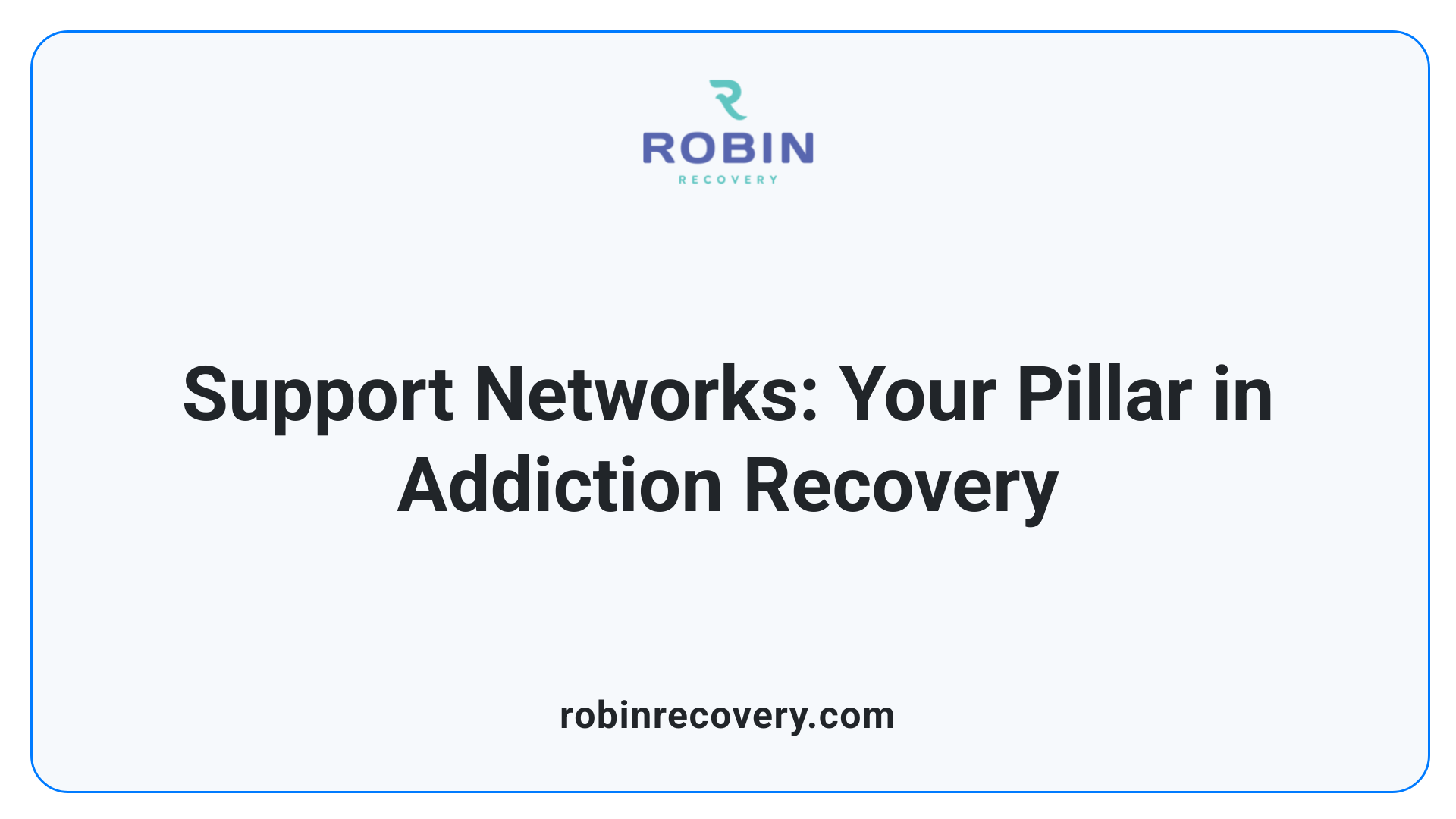
Why is building a supportive network important for recovery?
Building a support network is essential for those in outpatient drug rehab, as it offers vital emotional and practical help during the recovery process. These relationships foster a sense of belonging and safety, helping individuals handle stress and emotional challenges more effectively.
Supportive connections with friends, family, peers, and professionals serve as a safety net, providing encouragement when setbacks occur. They help recognize early warning signs of relapse or emotional distress and offer reassurance and motivation to stay on track.
Engaging with a variety of social connections not only provides ongoing encouragement but also promotes resilience. Participating in support groups, attending community activities, or establishing mentorships builds a foundation of trust and understanding. These relationships can significantly diminish feelings of isolation, which often impair recovery efforts.
Proactively cultivating a supportive environment by being involved in sober communities, volunteering, or joining clubs ensures that assistance is accessible at all times. The overall impact is a more empowered, connected individual who is better equipped to maintain sobriety long-term.
In summary, a strong support network enhances mental health, provides motivation, and helps maintain accountability. It is a cornerstone of successful recovery, contributing to emotional stability and reducing the likelihood of relapse.
The Benefits of Peer Support in Addiction Recovery
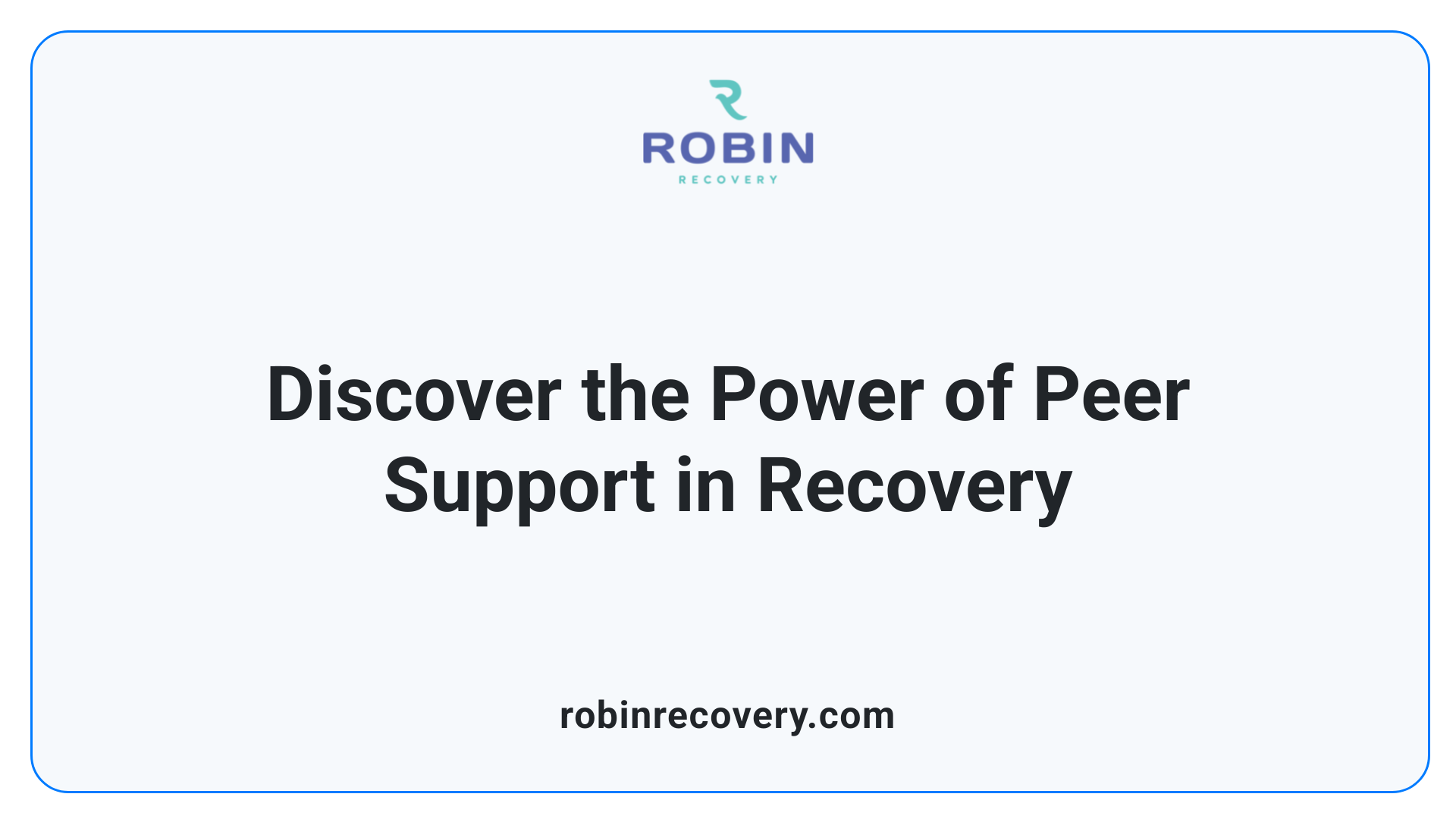
What are the benefits of peer support in recovery?
Peer support groups are an essential element in the journey toward addiction recovery. These groups create a space where individuals facing similar challenges can share experiences, offer encouragement, and motivate each other to stay committed to their sobriety goals. Engaging with peers who understand firsthand the ups and downs of recovery boosts confidence and self-efficacy.
Studies indicate that participation in peer support networks leads to improved social support and a stronger sense of belonging. This sense of community is crucial for maintaining motivation and resilience over the long term. Additionally, peer support has been linked to higher abstinence rates and lower relapse rates, making it a vital component alongside professional treatments.
One significant advantage is the reduction of negative feelings such as guilt or shame, which often accompany addiction. Sharing experiences with others reduces feelings of isolation and helps individuals cope better with social and psychological stresses.
Peer support also provides practical resources, including shared coping strategies, educational materials, and tools that help manage cravings and risky behaviors like injection practices linked to HCV transmission. This type of support notifies individuals they are not alone, fostering hope and persistence.
Overall, peer support enhances treatment engagement and retention, improves mental health outcomes, and creates a foundation for sustained recovery. It offers a complementary approach that can transform clinical care into a more personal and empowering experience for those overcoming addiction.
Strategies for Building an Effective Support Network
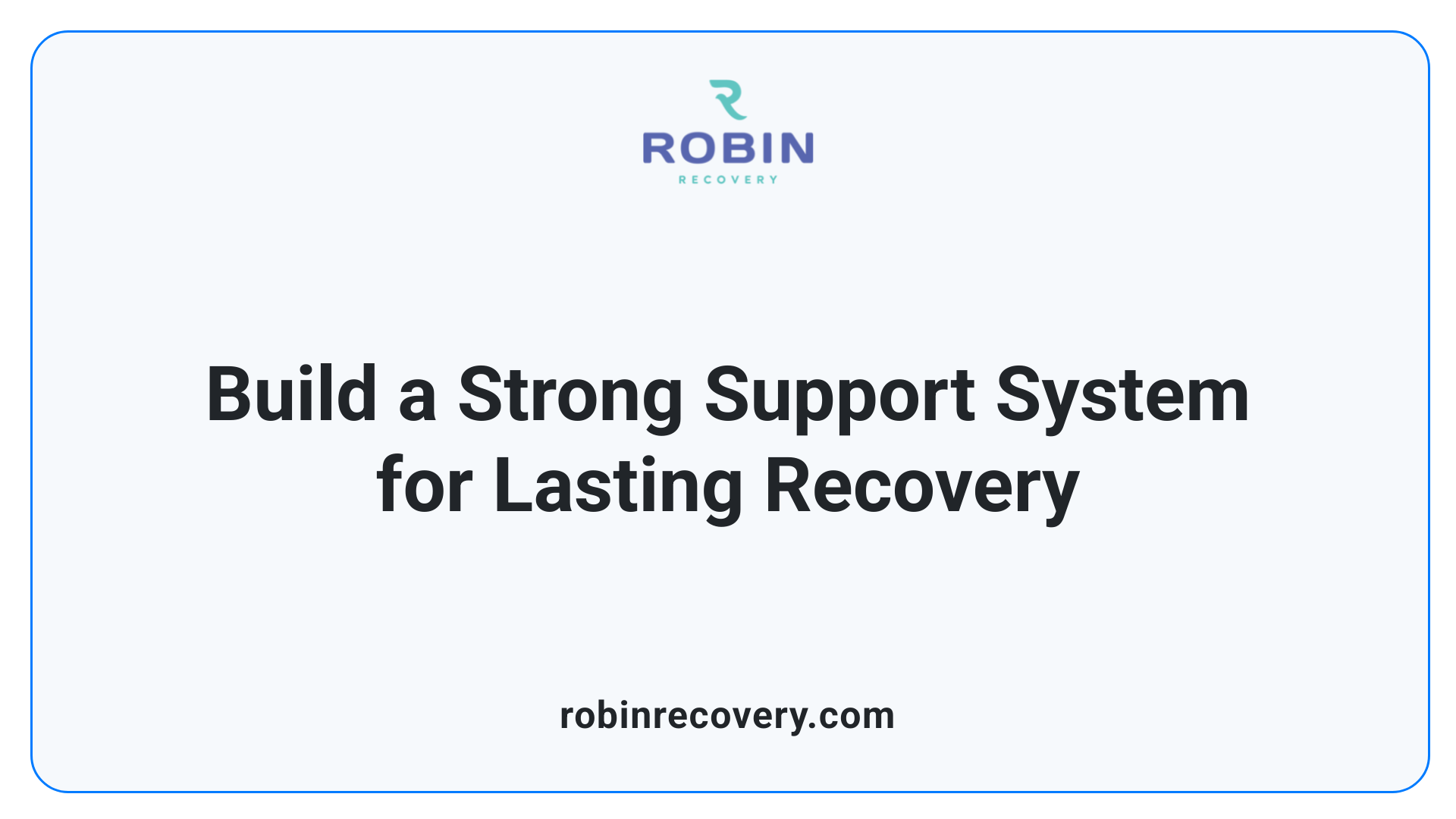
Family involvement
Involving family members in recovery can strengthen bonds and provide emotional stability. Open communication about support needs and participation in family therapy sessions foster collaboration and understanding. Supportive family relationships create a safe space for sharing victories and struggles.
Community resources
Community organizations and support groups such as Alcoholics Anonymous (AA), Narcotics Anonymous (NA), and online communities offer ongoing encouragement and shared experiences. These groups provide a sense of belonging and motivation, reducing feelings of isolation. Local events and workshops on coping skills also help expand and reinforce support systems.
Practical strategies
Building an effective support network involves identifying trusted friends, family, and professionals who understand and support your recovery journey. Attending group therapy and connecting with sponsors or sober friends creates accountability. Setting boundaries with negative influences and participating in sober activities increase resilience. Consistently engaging with community programs and utilizing online platforms further enriches support, making long-term recovery more achievable.
Impact of Support Networks on Mental Health and Wellbeing
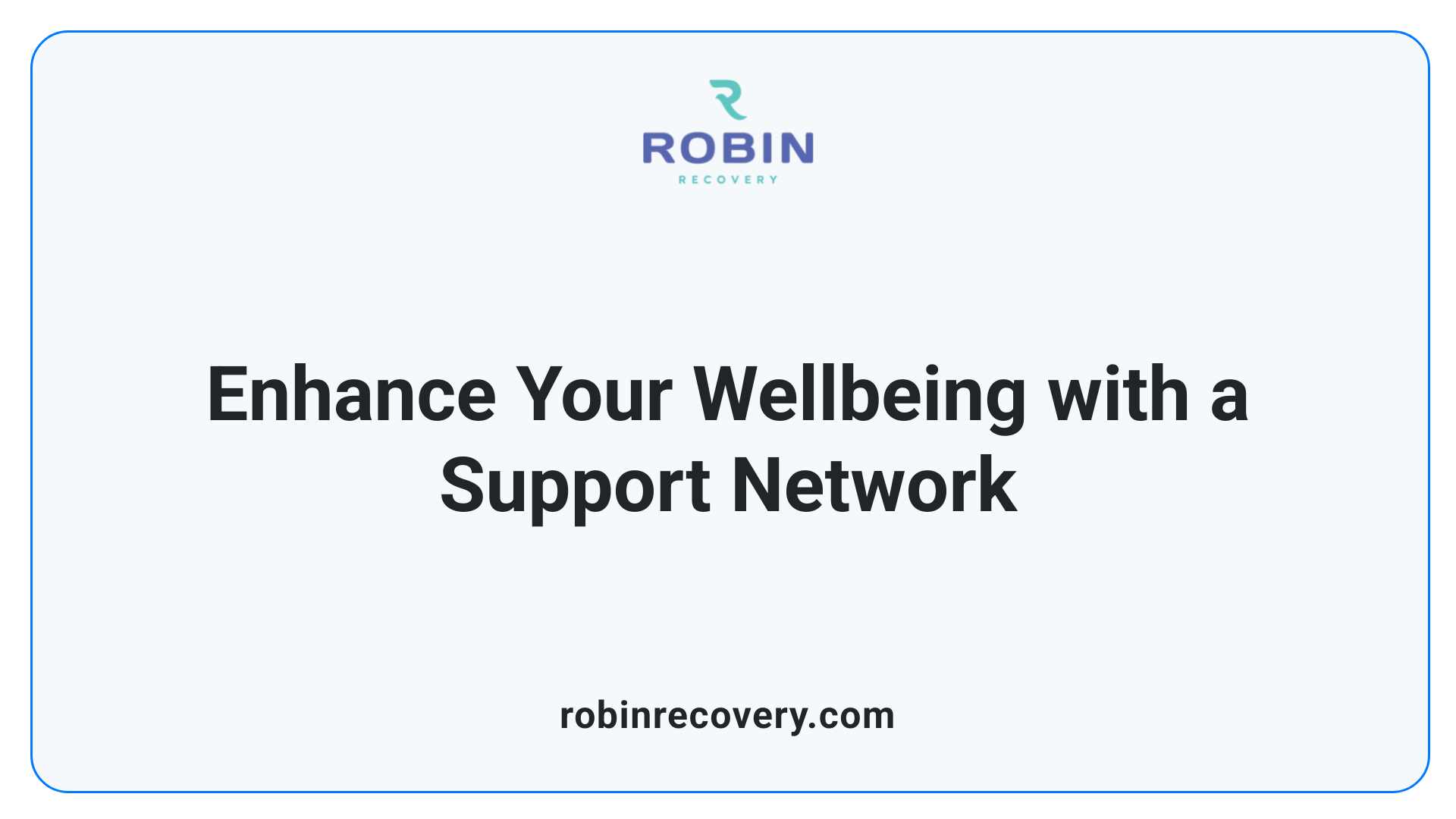
How does a strong support network contribute to mental health and wellbeing?
A robust support network is vital for mental health, especially in recovery and general wellbeing. It offers emotional comfort, understanding, and practical help during challenging times. When individuals feel supported, they are more resilient and less prone to feelings of loneliness and isolation.
Social connections help reduce stigma surrounding mental health issues, making it easier for people to seek help when needed. These networks include family, friends, support groups, and professional care providers, all working together to foster a sense of belonging and safety.
Engagement in positive relationships and community activities not only bolsters emotional health but also provides opportunities for shared experiences and mutual encouragement. Additionally, crisis support services like the 988 Lifeline or the Suicide Call Back Service offer free, confidential help for those experiencing emotional distress or suicidal thoughts, further enhancing safety and support.
Building a strong, trusting relationship with others through activities like volunteering or participating in support groups strengthens mental resilience. Ultimately, nurturing these connections, alongside utilizing mental health resources, significantly contributes to overall wellbeing and helps individuals manage stress, prevent relapse, and sustain long-term recovery.
The Role of Professional and Self-Support in Recovery
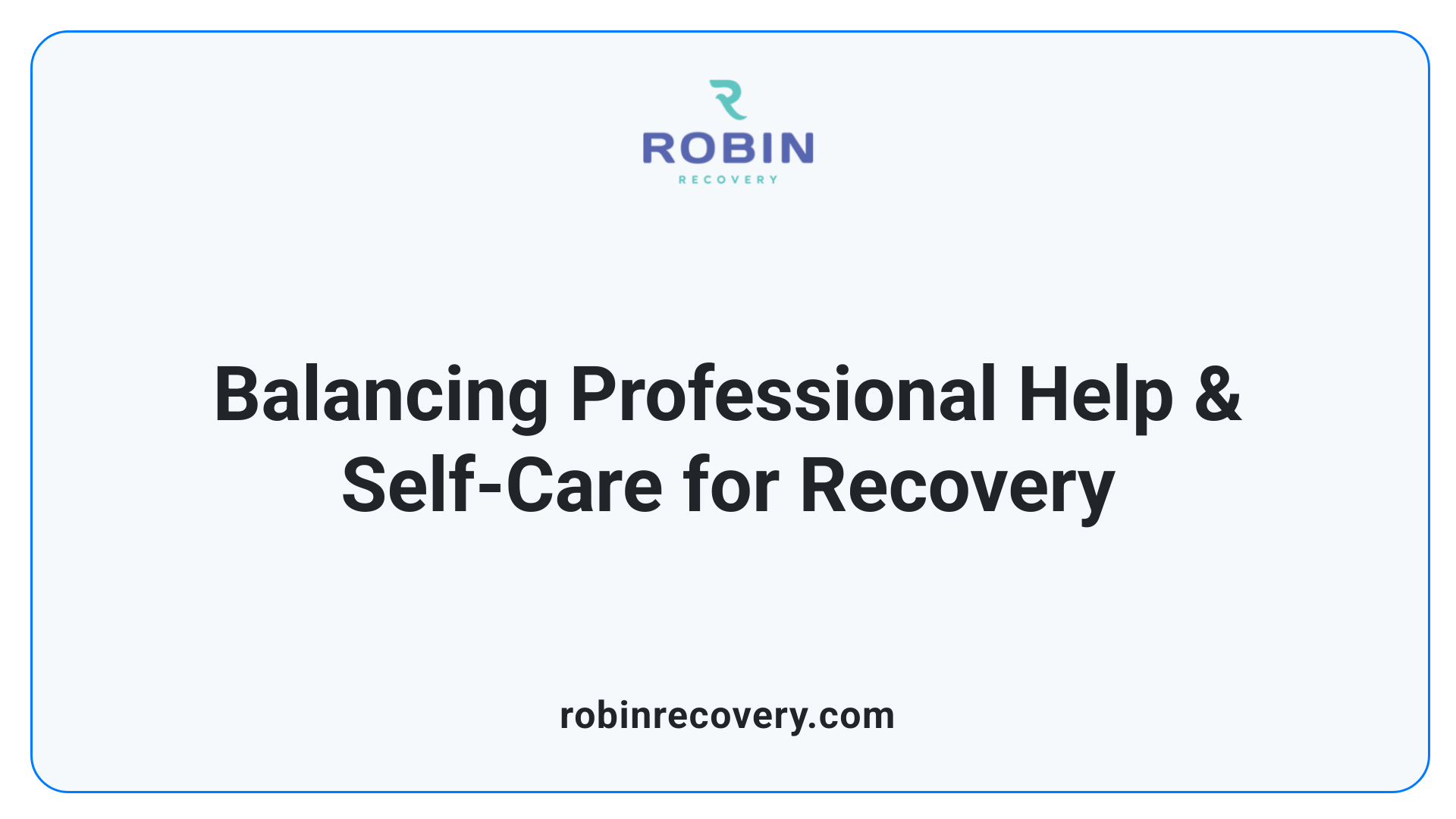
Therapists and counselors
In outpatient drug rehab, professional support is vital. Therapists, addiction counselors, and doctors provide objective guidance and coping strategies tailored to the individual’s needs. They help manage setbacks and develop personalized recovery plans. Regular sessions with these professionals foster accountability and offer emotional reassurance, making it easier for individuals to stay committed to their sobriety journey.
Developing self-reliance
While external support is essential, building internal resilience is equally important. Self-support involves practicing self-compassion, setting realistic goals, and engaging in mindfulness and self-care routines. Recognizing personal progress and celebrating milestones boost confidence. Developing these skills helps individuals handle stress and challenges independently, reinforcing their recovery even when external support is less accessible.
Comprehensive support framework
An effective recovery process combines support from professionals, peers, family, and self-care. Support groups like NA or AA, family therapy, and online communities offer shared experiences and motivation. Creating boundaries with toxic influences and nurturing healthy relationships further strengthen the support network. Continual engagement in community activities and peer groups ensures long-term resilience, making relapse less likely.
Support Components Examples Additional Notes Professional Support Therapists, doctors, counselors Provides tailored guidance and managing setbacks Peer Support Support groups, mentors Shares experiences, motivation, and accountability Family and Loved Ones Family therapy, open communication Offers emotional comfort and understanding Self-Support Strategies Mindfulness, goal-setting, self-care Builds internal strength and resilience Community Involvement Support groups, activities Ensures ongoing connection and support
Building a system that integrates these elements creates a strong foundation for lasting recovery. Continuous collaboration among professionals, peers, and oneself increases the chance of maintaining sobriety and thriving long-term.
Long-term Benefits of Support Networks in Recovery
What role does a support network play in addiction recovery?
A support network is instrumental in helping individuals achieve and maintain long-term sobriety. It provides emotional encouragement, social connection, and practical assistance, all of which are vital during the difficult journey of recovery.
Support systems help reduce feelings of loneliness and isolation, common barriers to sustained sobriety. They foster a sense of belonging and understanding, reminding individuals that they are not alone in their struggles.
Accountability is another significant aspect of a support network. Regular interactions with family, friends, peers, and professionals motivate individuals to stay committed to their recovery goals and follow through with treatment protocols.
Additionally, support groups and peer forums offer shared wisdom, coping mechanisms, and encouragement based on collective experiences. This exchange helps individuals navigate setbacks and reinforces their resilience.
In essence, a well-established support network enhances motivation, promotes emotional well-being, and greatly increases the chances of maintaining sobriety for the long haul.
How do ongoing support connections help in addiction recovery?
Ongoing engagement with support groups, therapy, and peer mentorship maintains momentum beyond initial treatment phases. Connections foster a sense of accountability and purpose, often becoming lifelong friendships that offer continued encouragement.
These relationships not only provide practical advice but also serve as a reminder of the progress made, helping individuals celebrate milestones and stay focused amid challenges.
Continued interactions with a strong support system improve mental health outcomes and decrease relapse rates drastically. They equip recovering individuals with necessary tools and a safety net during times of stress or temptation.
What are the benefits of forming lifetime connections through support networks?
The relationships formed through support networks can last a lifetime, offering ongoing emotional stability and guidance. These long-term connections create a community of understanding and shared commitment to staying sober.
Such bonds foster continuity in support, making it easier to cope with life's inevitable stresses without reverting to substance use. They also provide mentorship opportunities, allowing those further along in recovery to guide newcomers.
In the bigger picture, these enduring relationships contribute to improved quality of life, personal growth, and a sustained commitment to sobriety, ultimately strengthening the foundation for lifelong recovery.
Embracing the Power of Support for Sustainable Recovery
In outpatient treatment, building a robust support network is not just beneficial—it is essential. Through family, friends, peers, and professionals, individuals can gain the encouragement, guidance, and accountability needed for sustained recovery. By understanding and harnessing the power of supportive connections, those on the path to recovery can transform their journey into one of hope, resilience, and lasting positive change.
References
- Building a Support System: A Key to Thriving in Outpatient Rehab ...
- How to Build a Support Network During Addiction Recovery
- The Importance of Peer Support in Outpatient Treatment Programs
- Benefits of peer support groups in the treatment of addiction - PMC
- How to Build a Support System During Intensive Outpatient Treatment
- Building a Sober Support Network: The Bedrock of Recovery
- Building a Strong Support Network for Recovery | Washington Rehab
